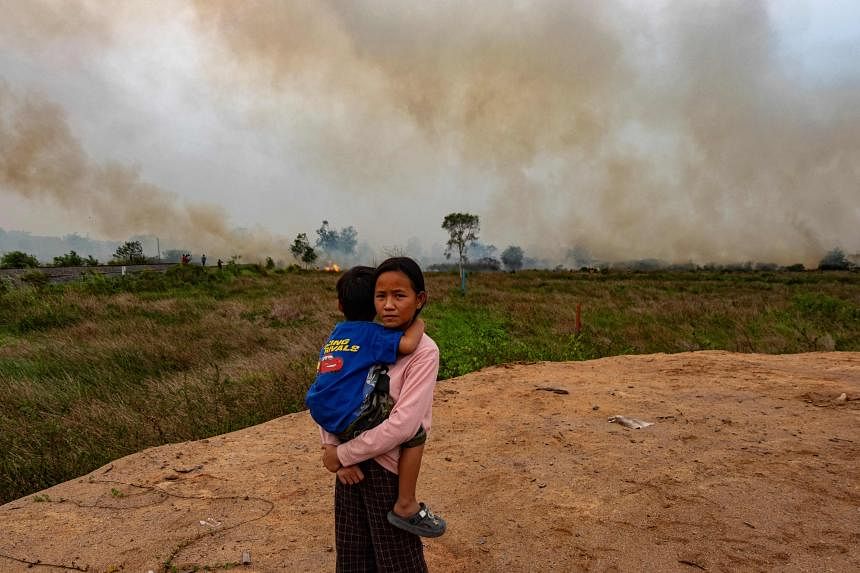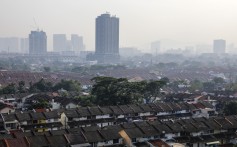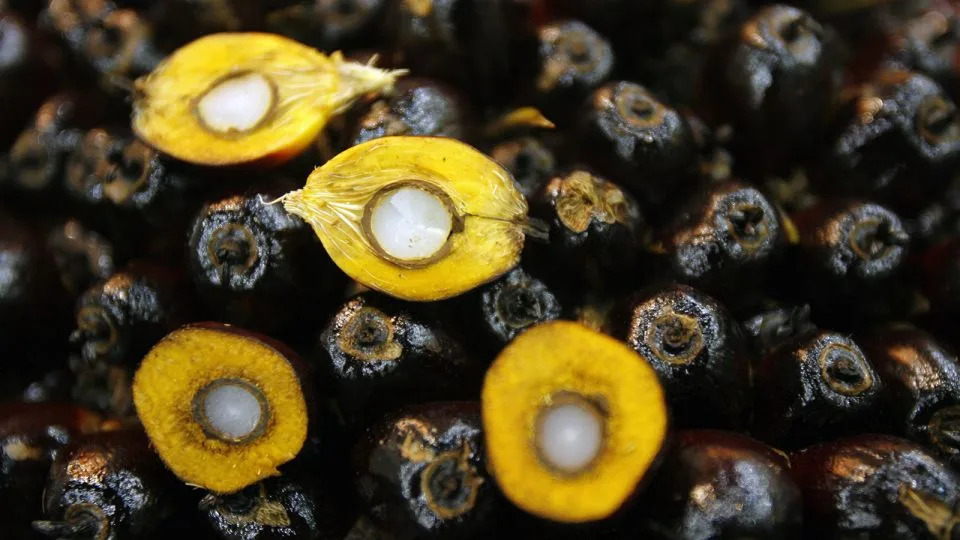
OCT 9, 2023
JAKARTA – Indonesian President Joko Widodo said he has ordered the military and police to tackle forest fires after neighbouring countries complained that smoke from the burning was making the air unhealthy.
“When there is fire, there will be smoke, and if there is wind, it can get anywhere,” Mr Widodo, also known as Jokowi, told reporters in Jakarta on Saturday.
“I have ordered the military chief and the police to handle every hot spot, however small, immediately.”
Singapore and Malaysia have complained about the spread of choking haze from the fires.
Singapore’s 24-hour PSI air pollution readings in the centre and east of the island rose above 100 on Saturday, a level described as “unhealthy”, according to the National Environment Agency website.
They dropped below 100 on Sunday.
Thirteen areas in Peninsular Malaysia recorded unhealthy air quality on Sunday with the highest reading of 163 in Melaka and Batu Pahat in Johor, according to the Air Pollutant Index of Malaysia’s website.
Haze is a recurring problem in South-east Asia, disrupting tourism, causing severe respiratory illness and costing local economies billions of dollars.
It mostly originates from natural or man-made fires in Indonesia and Malaysia during the dry season.
Many of the blazes result from illegal burning to clear farmland for cash crops such as oil palm, a practice that persists despite years of government efforts to stamp it out.
Fires are often the worst at the height of the dry season in August and September, but in El Nino years, rains are often delayed, allowing the burning to spread into October and beyond.
Almost 3,000 hot spots were detected in Indonesia in mid-September, with Sumatra and the Indonesian part of Borneo island, called Kalimantan, accounting for more than two-thirds, according to Indonesia’s National Disaster Mitigation Agency.
“In this prolonged dry season, the heat is above normal,” Mr Widodo said. “Land and forest fires don’t just happen in Indonesia but also in the US, Canada. Here we can still control it better.”
He said the situation is far different from the strong El Nino in 2015, when haze blanketed the region.
During that season, about 2.6 million ha burned and the haze lingered for weeks, causing more than 100,000 premature deaths, according to researchers at Harvard and Columbia universities. In the El Nino of 1997, almost twice as much land burned.
Indonesia’s weather bureau has said the wet season may be delayed this year until late October or November in Sumatra and Kalimantan, and even as late as December in some parts of the country.
Indonesia’s environment minister said forest fires in the country had declined and measures were being taken to tackle the issue but ‘not based upon Malaysia’s request’
Asean officials have pledged to minimise and eventually eliminate crop burning in the region amid concerns about cross-border haze
Reuters
6 Oct, 2023
Forest fires in some parts of Indonesia have declined and no haze had been detected moving to Malaysia, Indonesia’s environment minister said on Friday, a day after its neighbour urged Jakarta to take action as air quality worsened.
Nik Nazmi Nik Ahmad, Malaysia’s minister of natural resources, environment and climate change, said he had asked his Indonesian counterpart to address the haze, as air quality worsens, saying haze should not be a new normal.
“I do not know what basis that Malaysia used in giving those statements. We are working not based upon Malaysia’s request,” Indonesia’s environment minister Siti Nurbaya said.
Southeast Asia haze crisis sparks fresh blame game, calls to deter ‘bad apples’
3 Oct 2023

Fires that sent haze billowing across the region in 2015 and 2019 burned millions of hectares of land and produced record-breaking emissions, according to scientists.
Almost every dry season, smoke from fires to clear land for palm oil and pulp and paper plantations in Indonesia blankets much of the region, bringing health risks and concerning tourist operators and airlines.
The Indonesian minister also said the number of forest fires in some parts of Sumatra and Borneo had declined and the government continues to put out the blazes.
Malaysia blames Indonesia for haze sparked by cross-border fires, prompting rebuff from Jakarta
Her remarks came as Southeast Asian agriculture and forestry ministers agreed to take collective action to minimise and eventually eliminate crop burning in the region.
In a statement after a meeting of the Association of Southeast Asian Nations (Asean) in Malaysia, members recognised “the adverse environmental and health impacts of crop burning practices,” and committed to collectively reduce and phase it out.
“This will require collective efforts, sustained commitment, and collaboration among [Asean members] farmers, local communities, and relevant stakeholders,” it said.

A farmer burns a paddy field to clear the land for a new crop in Thailand's Nakhonsawan province, 270km north of Bangkok
PHOTO: Reuters
PUBLISHED OCTOBER 05, 2023
KUALA LUMPUR - Southeast Asian agriculture and forestry ministers have agreed to take collective action to minimise and eventually eliminate crop burning in the region, amid deteriorating air quality and concern about cross-border haze.
In a statement after a meeting of the Association of Southeast Asian Nations (Asean) in Malaysia, members recognised "the adverse environmental and health impacts of crop burning practices," and committed to collectively reduce and phase it out.
"The meeting recognised the need for sustainable alternatives to crop burning, including the adoption of innovative and environmentally friendly agricultural practices," it said.
The pledge comes as air quality hit unhealthy levels in several parts of Malaysia in recent days and after weeks of elevated pollution in Indonesia.
Malaysia's environment minister in an interview with Reuters on Thursday (Oct 5) called on Indonesia and Asean to take action as air quality worsens, blaming it on fires from crop burning in Indonesia.
Almost every dry season, smoke from fires to clear land for palm oil and pulp and paper plantations in Indonesia blankets much of the region, bringing risks to public health and worrying tourist operators and airlines. Many of the companies that own these plantations are foreign or foreign-listed.
Jakarta has denied detecting any smoke drifting over its borders into Malaysia.
The Asean meeting agreed to develop and implement educational campaigns and training programmes on sustainable agricultural practices, providing technical guidance on alternative methods for land clearing.
"This will require collective efforts, sustained commitment, and collaboration among (Asean members) farmers, local communities, and relevant stakeholders," it said.
The ministers also agreed to review and update existing regulations and guidelines with the aim of phasing out the use of antimicrobials in food production, they said.


